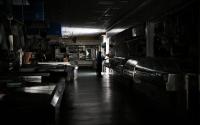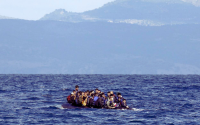9 January 2009
1. This statement focuses on the impact of Israel's continuing Gaza military campaign, initiated on 27 December 2008, on the humanitarian situation confronting the 1.5 million Palestinians confined to the Gaza Strip. In accordance with the undertaking of the mandate, it confines its comments to issues associated with Israel's obligations as occupying power to respect international humanitarian law (IHL), which refers mainly to the legal obligations contained in the Fourth Geneva Convention of 1949, which sets forth in some detail the legal duties of Israel as the occupying power. The essential obligations of IHL are also considered to be binding legal duties embedded in customary international law. This statement touches on issues of international human rights law (IHR), as well as the implications of severe and sustained violations of either IHL or IHR as raising issues of international criminal law (ICL). It is also necessary to assess the underlying Israeli security claims that the military incursion into Gaza was a 'defensive' operation consistent with international law and the United Nations Charter, and that no 'humanitarian crisis' existed making the scale and nature of the military force used allegedly 'excessive' and 'disproportionate.'
2. Although Israel has contended that it is no longer an occupying power, due to its withdrawal of its forces from within Gaza, it is widely agreed by international law experts that the continued Israeli control of borders, air space, and territorial waters is of a character as to retain Israel status legally as occupying power.
3. The quality of this report is undoubtedly diminished by the absence of first-hand observations of the pre-existing humanitarian situation existing in Gaza, which was to be the objective of a mission undertaken by the Special Rapporteur to gather information for use in making a report to the regular session of the Human Rights Council (HRC) scheduled for March, 2009. This mission was aborted when the Special Rapporteur was denied entry to Israel on 14 December 2008, detained for some 15 hours in a holding cell at Ben Gurion Airport, and expelled on the next day. Such treatment of a UN expert on mission would seem to raise serious issues for the Organization as a whole, bearing on the duties of a member state to cooperate, and to deal with those carrying out UN work with appropriate dignity. It is to be hoped that the government of Israel can be persuaded to reconsider its policy of exclusion that has hampered the work of this mandate. This concern about exclusion has been compounded during the period preceding the Israeli attack upon Gaza, as well during the military operations, by denying access to foreign journalists, a policy that has been successfully challenged in Israeli courts, but as yet with no tangible results. As noted in the New York Times, Israel denies media representatives access to the humanitarian impacts of its military operations in Gaza while encouraging journalists to view any harmful effects of the rocket attacks on civilians in Israel. Even requests by the International Committee of the Red Cross to investigate scenes of supposed humanitarian abuse have so far been refused, e.g. to visit the site of military action in the Gazan town of Zeitan that reportedly killed by deliberate action 60 members of the Samouni family, including several children. This issue of access is crucial for the work of Special Rapporteurs and deserves the attention of the HRC, and of the United Nations generally.
4. The rationale for this Special Session is the existence of a humanitarian emergency in Gaza, a set of conditions that has been questioned in many public settings by the Israeli foreign minister, Tzipi Livni. Ms. Livni contends there is no need for a 'humanitarian truce' because there is no humanitarian crisis. She asserts that Israel has allowed shipments of food and medicine to cross the border, but as UNRWA and other UN officials have observed, these shipments will not alleviate hunger and nutritional difficulties unless distribution becomes possible, which is not the case given the war conditions prevailing in most of the Gaza Strip. To what slight extent this dire circumstance can be addressed by the three hour pause in combat operations announced by Israel on 7 January remains to be seen. Beyond the immediate crisis some underlying features should be noted: about 75% of the population lacks access to sanitary water and has no electric power. Such conditions are superimposed on the circumstances of Gazans resulting from the prolonged blockade that had deteriorated the physical and mental health, and the nutritional status, of the population of Gaza as a whole, leaving some 45% of children suffering from acute anemia. Interference in the supply of medicines and health equipment, and border closures, had made it impossible for many Gazans to receive or continue treatment for life-threatening conditions. It was also reliably concluded that up to 80% of Gaza was living under the poverty line, that unemployment totals approached 75%, and that the health system was near collapse from the effects of the blockade. This set of conditions certainly led impartial international observers and civil servants to an uncontested conclusion that the population of Gaza was already experiencing a humanitarian crisis of grave magnitude prior to 27 December.
5. The use of force by an occupying power against the security threats emanating from a population under occupation is permissible within the constraints set by international law. Israel claims that its current military campaign is reasonable and necessary given the scale and severity of the rocket attacks directed at Israeli civilian populations living in the South Israel towns of Sderot and Ashdod, and attributed to Hamas. There are several issues that would need to be resolved in evaluating this claim that have not been adequately discussed to date in either diplomatic settings or by the media.
6. It should be pointed out unambiguously that there is no legal (or moral) justification for firing rockets at civilian targets, and that such behavior is a violation of IHR, associated with the right to life, as well as constitutes a war crime. At the same time, the nature of the offense must be evaluated with the context of its occurrence, including the relevance of the temporary ceasefire that had held since June 2008 until seriously disrupted by a lethal Israeli attack on Palestinian militants in Gaza on 4 November 2008. For the year prior to 27 December, not a single Israeli death resulted from rockets fired from Gaza. Further, since June of 2008 a ceasefire had been observed by both sides, with some infractions taking place, but without altering the willingness of both sides to uphold the ceasefire. During this period Israel had been expected to lift, or at least ease the blockade that had imposed severe hardships on the entire population of Gaza, especially through restraints on the supply of food, medicine and medical equipment, and fuel, but failed to do so. The acute harm done to civilian Gaza has been repeatedly pointed out by leading UN officials on the ground, including the commissioner-general of the UN Relief and Works Agency (UNRWA) that is most directly engaged with the daunting task of meeting the humanitarian needs of Gazans.
7. This blockade in effect for a period of 18 months was unlawful, a massive form of collective punishment, and as such in violation of Article 33 of the Fourth Geneva Convention, and also a violation of Article 55, which requires that the occupying power ensure that the civilian population has sufficient food and that its health needs are addressed. Such blockade does not alter the unjustifiable character of the rocket attacks, but it does suggest two important conclusions from a legal perspective: first, that the scale of civilian harm resulting from Israeli unlawful conduct was far greater than that of Palestinian unlawful conduct; secondly, that any effort to produce a sustainable ceasefire should ensure that Israel as well as Hamas respect IHL, which most concretely means that interferences with the access of goods for the maintenance of normal civilian life must end, and cannot be reestablished as a retaliatory measure if some sort of rocket attack occurs in the future. Similarly, if Israel should impose such constraints in the future, it would not provide any legal cover for resumed rocket attacks or other forms of Palestinian violence directed at Israeli civilians. There are some difficulties in attributing responsibility for all rocket attacks to Hamas. There are independent militias operating in Gaza, and even prior to Hamas, governing authorities were unable to prevent all rocket firings despite their best efforts to do so.
8. The Israeli military campaign was also justified by Israeli leaders as an 'inevitable' and 'unavoidable' response to the persistence of the rocket attacks. Here again it is important to examine the factual setting of Israel's justifications, which go to the reasonableness of such action and its defensive character. Most accounts of the temporary ceasefire indicate that it was a major Israeli use of lethal force on November 4, 2008 that brought the ceasefire to a de facto end, leading directly to increased frequency of rocket fire from Gaza. It is also relevant that Hamas repeatedly offered to extend the ceasefire, even up to ten years, provided that Israel would lift the blockade. These diplomatic possibilities were, as far as can be assessed, not explored by Israel, although admittedly complicated by the contested legal status of Hamas as the de facto representative of the Gazan population. This has legal relevance, as a cardinal principle of the UN Charter is to make recourse to force a matter of last resort, making it obligatory for Israel to rely in good faith on nonviolent means to end rocket attacks.
9. It is also important under international law to determine the extent to which the reliance on force is proportionate to the provocation and necessary for safeguarding security. Here, too, the Israeli arguments seem unpersuasive. As mentioned above, the rocket attacks, although unlawful and potentially dangerous, had caused little damage, and no loss of life. To mount a major military campaign against an essentially defenseless society already gravely weakened by the blockade accentuates the disproportion of reliance on modern weaponry in combat situations where military dominance was largely uncontested. It seems significant that Palestinian casualty totals at this time are estimated to be 640 killed, some 2800 wounded, included many critically, with civilian victims set at about 25% by qualified observers. In contrast, according to the latest reports, four Israeli soldiers have died, apparently all as a result of 'friendly fire,' that is by Israeli firepower wrongly directed. The one-sidedness of casualty figures is one measure of disproportion. Another is the scale of devastation and the magnitude of the attacks. It is obvious that the destruction of police facilities, as well as many public buildings, in crowded urban settings represents an excessive use of force even if Israeli allegations are accepted at face value. As discrediting as is the reliance on disproportionate force, is the lack of connection between the alleged threat associated with Gaza rockets and the targets of the Israeli attacks, giving added weight to the claims that the Israeli use of force is a form of 'aggression' prohibited by international law, and certainly excessive in relation to criteria of 'proportionality' and 'necessity.'
10. There have also been a variety of allegations made by qualified observers of Israeli reliance on legally unacceptable targets and on legally dubious weaponry that violate the customary international law prohibition on weapons and tactics that are 'cruel' or cause 'unnecessary suffering.' Among the targets viewed as unlawful under IHL: Islamic University, schools, mosques, medical facilities and personnel (including ambulances). Among weapons that are legally dubious under IHL: phosphorous gas in shells and missiles that burn flesh to the bone; dense insert metal explosives (so-called DIME) that cut victims to pieces, and raise risk of cancer for survivors; depleted uranium associated with deep-penetrating, so-called 'bunker buster' bombs used against Gaza tunnels, possibly causing radiation sickness for anyone exposed over a period of centuries.
11. This dimension of 'unnecessary suffering' associated with the Israeli campaign has an important feature that has not been given attention. In many contemporary situations of warfare large number of civilians seek to escape from harm by moving away from immediate danger, becoming 'internally displaced persons' or 'refugees.' But Israel through its rigid control of exit, directly and indirectly, has denied the civilian population of Gaza the option of becoming 'refugees,' never an option of choice, but reflective of desperation. Its denial tends to lend credibility that the population of Gaza is essentially imprisoned by Israeli occupation policy. From the perspective of IHL this foreclosure of a refugee option for Gazans is a serious aggravation of the dangers posed for a civilian population, and underscores the gravity of the humanitarian crisis that has existed in Gaza since 27 December. Since the military campaign this situation has dramatically worsened. The comment by a Red Cross spokesperson in Gaza City is expressive of the general understanding: "The size of the operations and the size of the misery on the ground is just overwhelming..."
12. From the perspective of the Mandate for oPt the following recommendations seem worthy of the attention at this Special Session:
(1) To request restoring access for Special Rapporteur to the occupied Palestinian territories as an essential feature of UN monitoring role;(2) To seek General Assembly initiatives with respect to investigating allegations of war crimes;(3) To propose long-term truce based on cessation of rocket launchings from Gaza and unconditional lifting of blockade;(4) To request an Advisory Opinion from the International Court of Justice to assess the legal status of Israeli control in Gaza subsequent to Israeli 'disengagement' in 2005.






